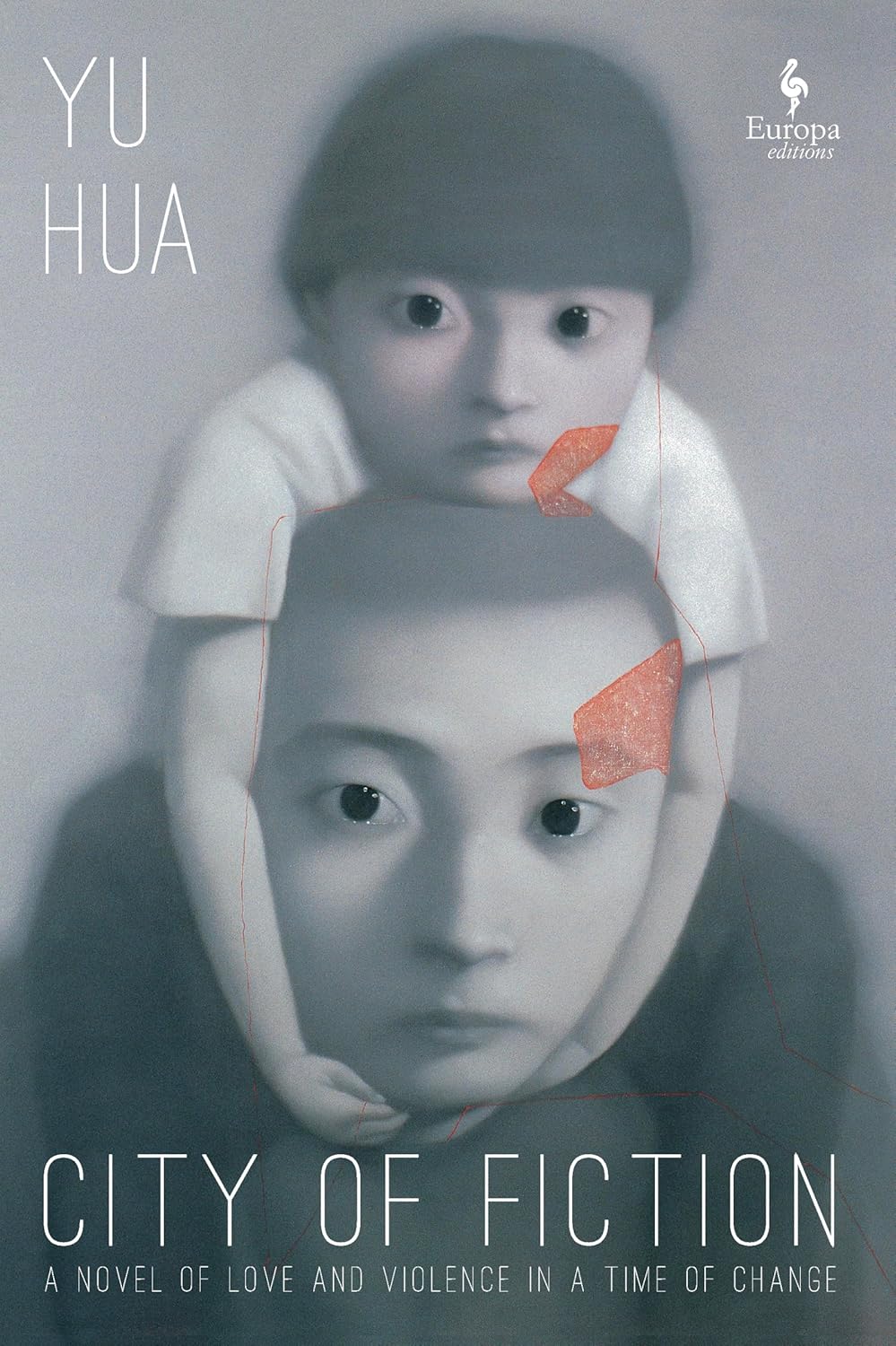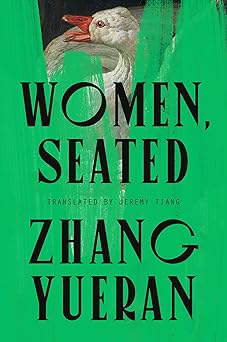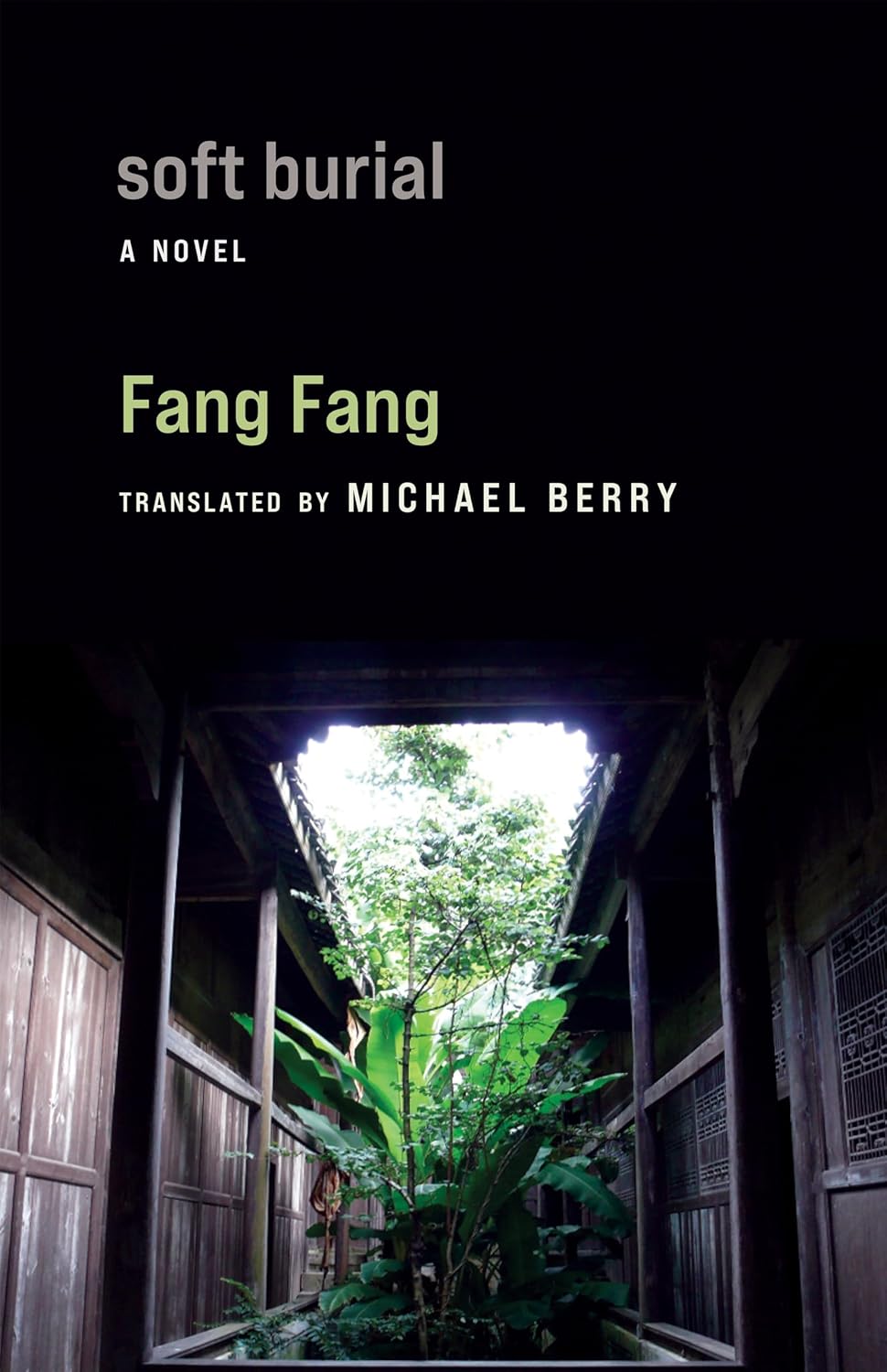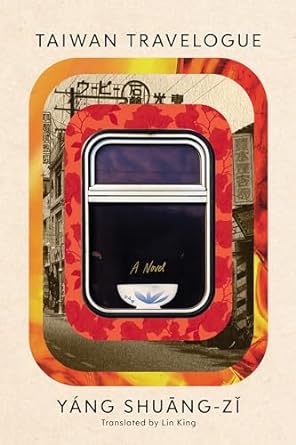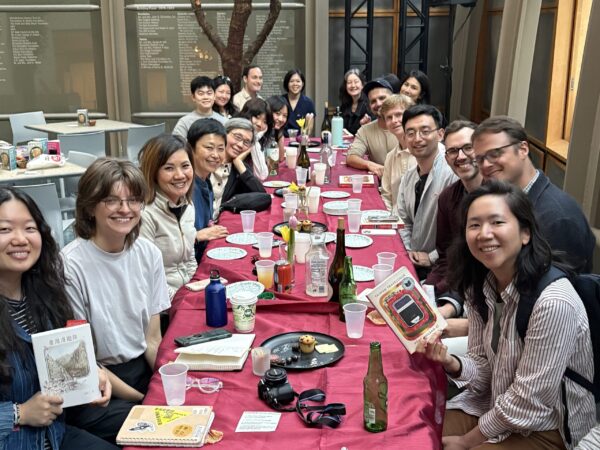
Join our bimonthly book club for evenings of spirited literary discussion and connection with likeminded readers. China Books Review editors host sessions in New York City (at Asia Society’s café) and Washington, D.C. (at JF Books). We meet five times a year (Feb, Apr, Jun, Sep, Nov) to discuss the latest literature from or on the Sinophone world, with a focus on translated Chinese fiction — featuring contextual information, breakout discussions and light refreshments, with plenty of time for mingling.
Email us to become a member! Write to info@chinabooksreview.com with a short bio and your city (NYC or DC, no remote/Zoom participation is possible for now). Also tell us if you want to join the next session (see below) or not.
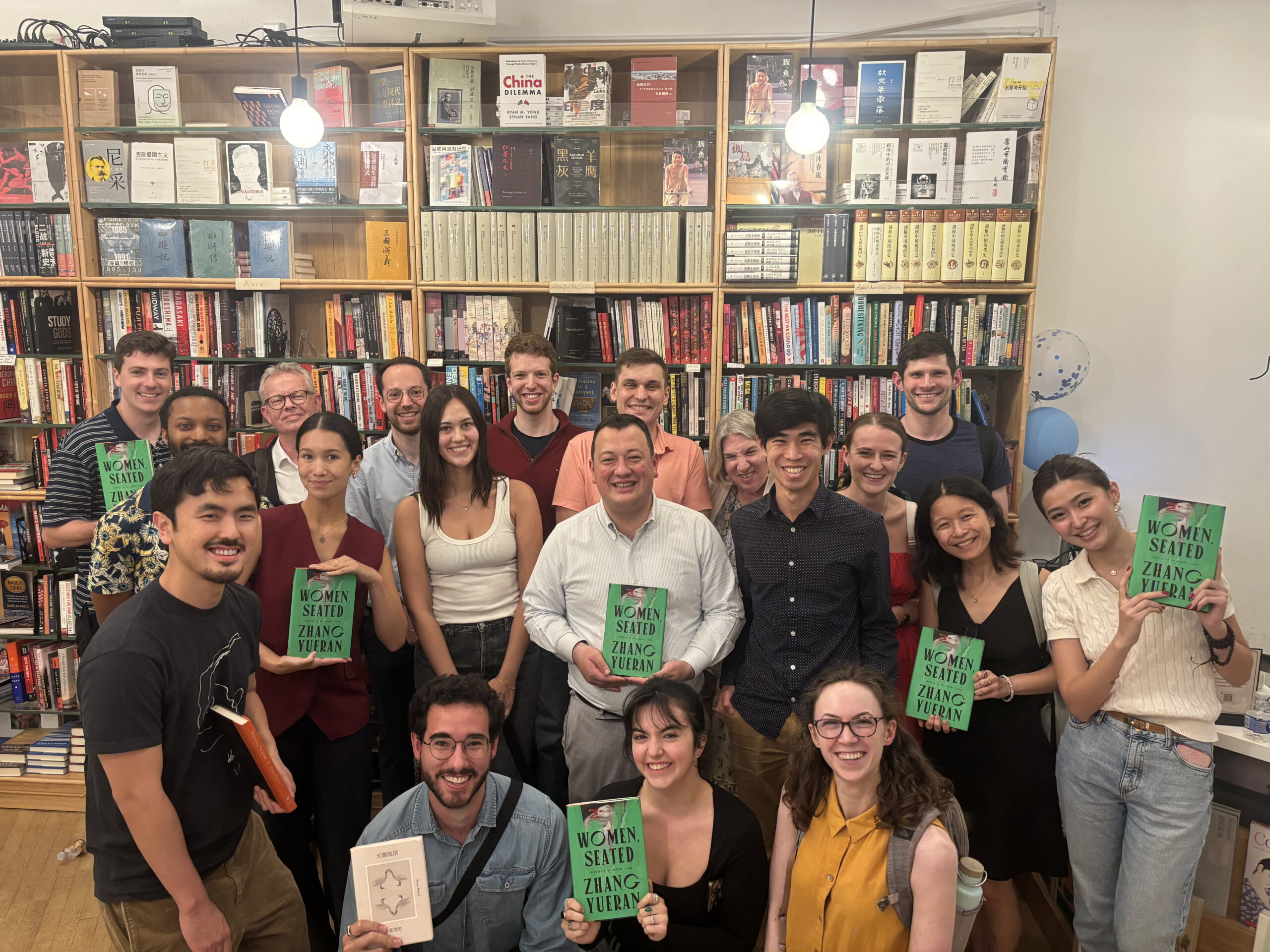
Members will be sent an invite to all new meetings, a month or two beforehand. Book club members are asked to purchase and read their own copy of the book in advance if they are joining, with digital copies also available. (No pressure to attend each time, and if you want to leave the club, just let us know next time we invite you, and we’ll take you off the list.)
Read on to see the time and place for the next session, the book we’ll be talking about, and previous books we’ve discussed.
Next session:
New York — November 5, 2025, 5:30-7pm (Asia Society, 725 Park Avenue, New York, NY 10021)
Washington, D.C. — November 10, 2025, 6 -7:30pm (JF Books, 1509 Connecticut Ave NW, Washington, DC 20036)
The book:
City of Fiction
The master is back. Yu Hua, famed for the classic novel To Live (2003), has done it again with his latest novel, City of Fiction. The plot starts simply enough: a northern Chinese man with a child strapped to his back walks south, seeking a city that doesn’t exist in hope of finding the woman who left him. This epic tale is set against the convulsive upheaval of early 20th century China: a world of brigandry, revolution, missionary schools and dynastic collapse. It’s an immersive story about a world on the edge of modernity, but still governed by ancient fears and traditions. But the tale of the man and his daughter ends abruptly, and part two centers on the vanished woman commences in a parallel past, taking us inside her psyche as she leaves behind both daughter and husband. This is Yu Hua at the height of his craft (read his Paris Review interview for more). Sweeping, daring and tender, City of Fiction is a story about an age not so different from our own.
Past reads:
Women, Seated
At surface, Women, Seated is a crime thriller: a trusted nanny kidnaps the child of a top official. Zhang Yueran’s intrepid storytelling turns this sleek 208-page novel into a greater story of power and prestige in contemporary China, and the pressures that build along the fault lines of hidden pasts. In her What China’s Reading column for China Books Review, Na Zhong wrote that the Chinese original, Swan Hotel (天鹅旅馆), explores the forces that “shape and distort relationships between the haves and have-nots.” The book’s English translation is a happy confluence of three writers, both Zhang and her translator Jeremy Tiang, as well as its acquiring editor, Han Zhang, the New Yorker (and China Books Review) contributor here making her first foray into bringing the latest and greatest in Chinese literature to international audiences for Riverhead. Though streaked with characters’ deceit, Women, Seated tells as true a story about China today as the best reportage.
Soft Burial
A Novel
Soft Burial follows the aftermath of the bloody land reform campaign of the late 1940s and early 1950s. The story opens with the mysterious, then-nameless protagonist pulled out of a river in an amnesiac state, near-to-death. As the story unfolds, the protective cocoon of amnesia that her subconscious wove around her begins to give way, revealing glimpses of her previous life and the unspeakable trauma that she suffered. First published in 2016, Soft Burial initially received critical acclaim but attacks from ultra-leftists featuring resurrected Cultural Revolution-era slogans — “Soft Burial is a terrible poisonous weed!” — followed. By 2017, the novel was banned and taken off of bookstore shelves. A strikingly salient examination of the toll of unearthing a long-buried past, the novel is an enjoyable read, too, due to its mellifluous translation.
Taiwan Travelogue
A Novel
Taiwan Travelogue is a novel disguised as a translation of a rediscovered Japanese text. Set in 1938, it follows Japanese novelist Aoyama Chizuko’s trip to Taiwan. Uninterested in banquets thrown by the colonial Japanese government, or its imperial agendas, Chizuko seeks out “the real Taiwan.” Accompanied by a young Taiwanese interpreter, Ō Chizuro (the two names share characters), Chizuko the novelist travels Taiwan — becoming infatuated with the island’s cuisine and her young translator in the process. But Ō Chizuru keeps her distance, what keeps the two apart? In a review published to China Books Review in February, “Found in Translation,” Michelle Kuo wrote, “Myriad questions, at root political, abound in the book.” The book deals with themes of same-sex love, colonialism, gender relations, and the meanings of food culture. Beyond politics, Taiwan Travelogue is a work of mouth-watering prose translated with exquisite delicacy.
Granta #169: China
The Magazine of New Writing
One of many short stories in Granta #169: China, “Hunter” by Shuang Xuetao (tr. Jeremy Tiang) was the focus of our first book club. The story follows the self-described “fifth-rate actor” Lu Dong after a chance encounter with an art house director allows him a chance to salvage his precarious career by playing a contract killer named Dick. Shuang Xuetao, a leading figure in a new generation of writers from China’s northeast known for their realism, earthy language and industrial settings, writes with a taut menace. Tiang’s translation is precise and cool as Dick’s marksmanship. Though not technically set in the northeast, “Hunter” is a fine example of a “Dongbei Renaissance” work, the term for the explosively popular pieces of literature, film and television coming out of China’s former industrial heartland.

